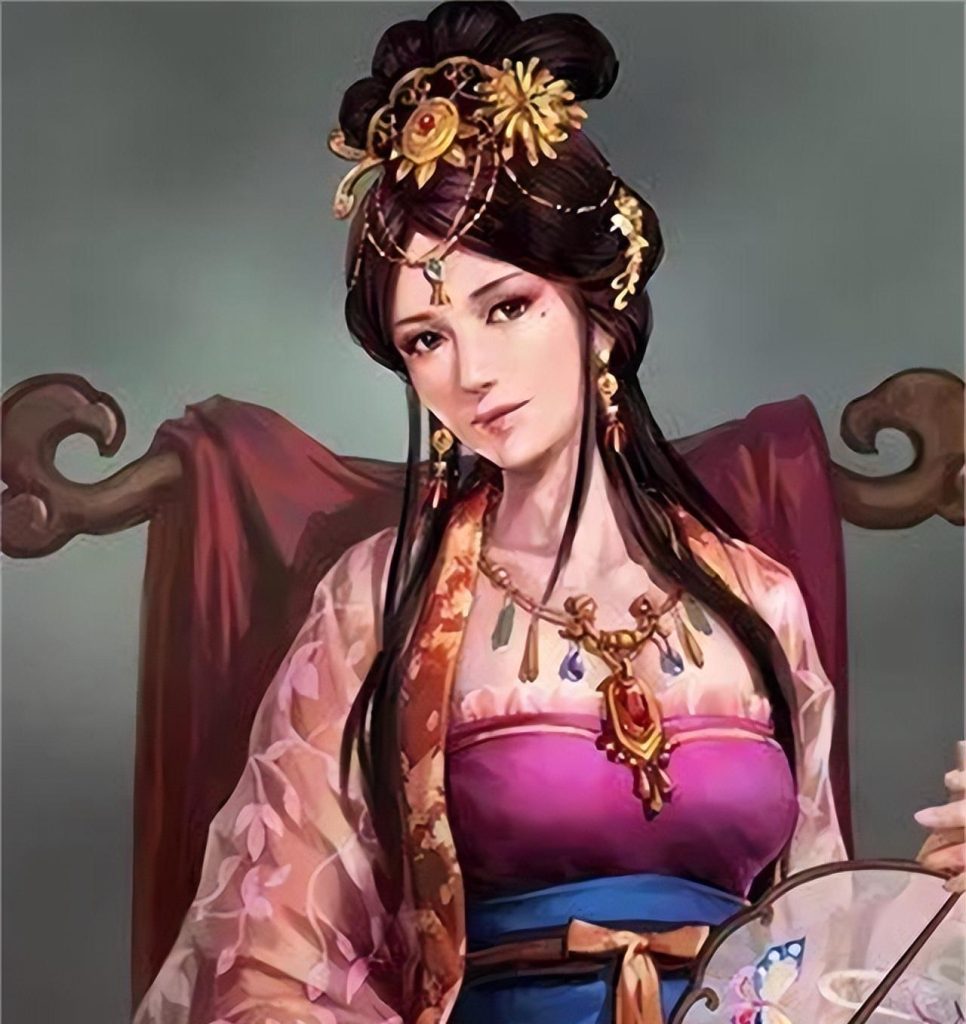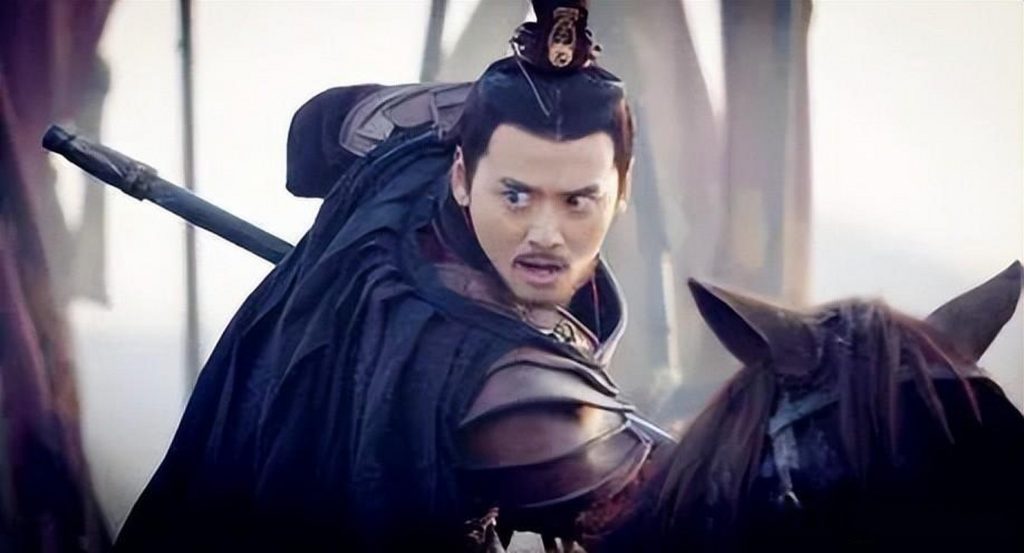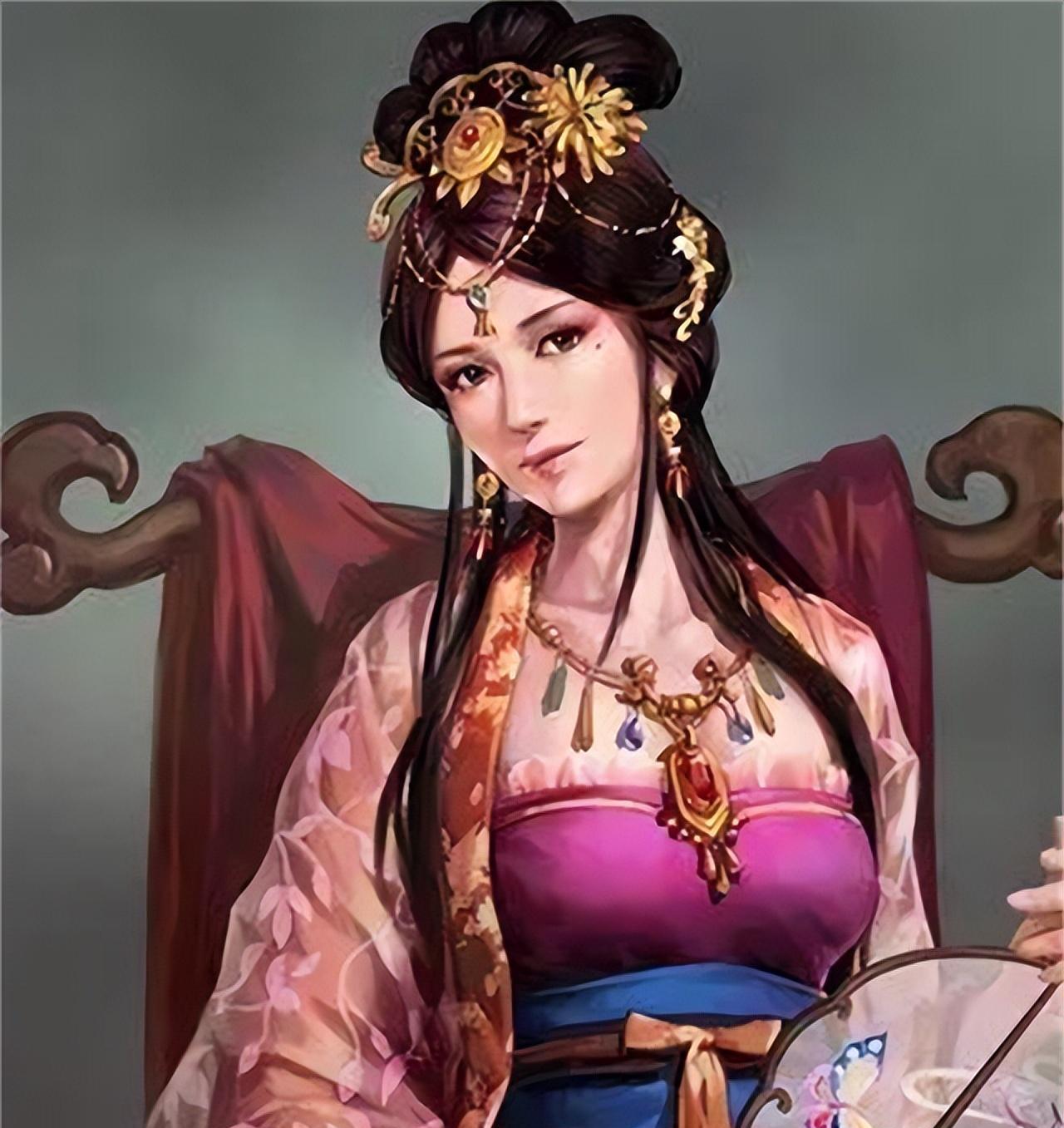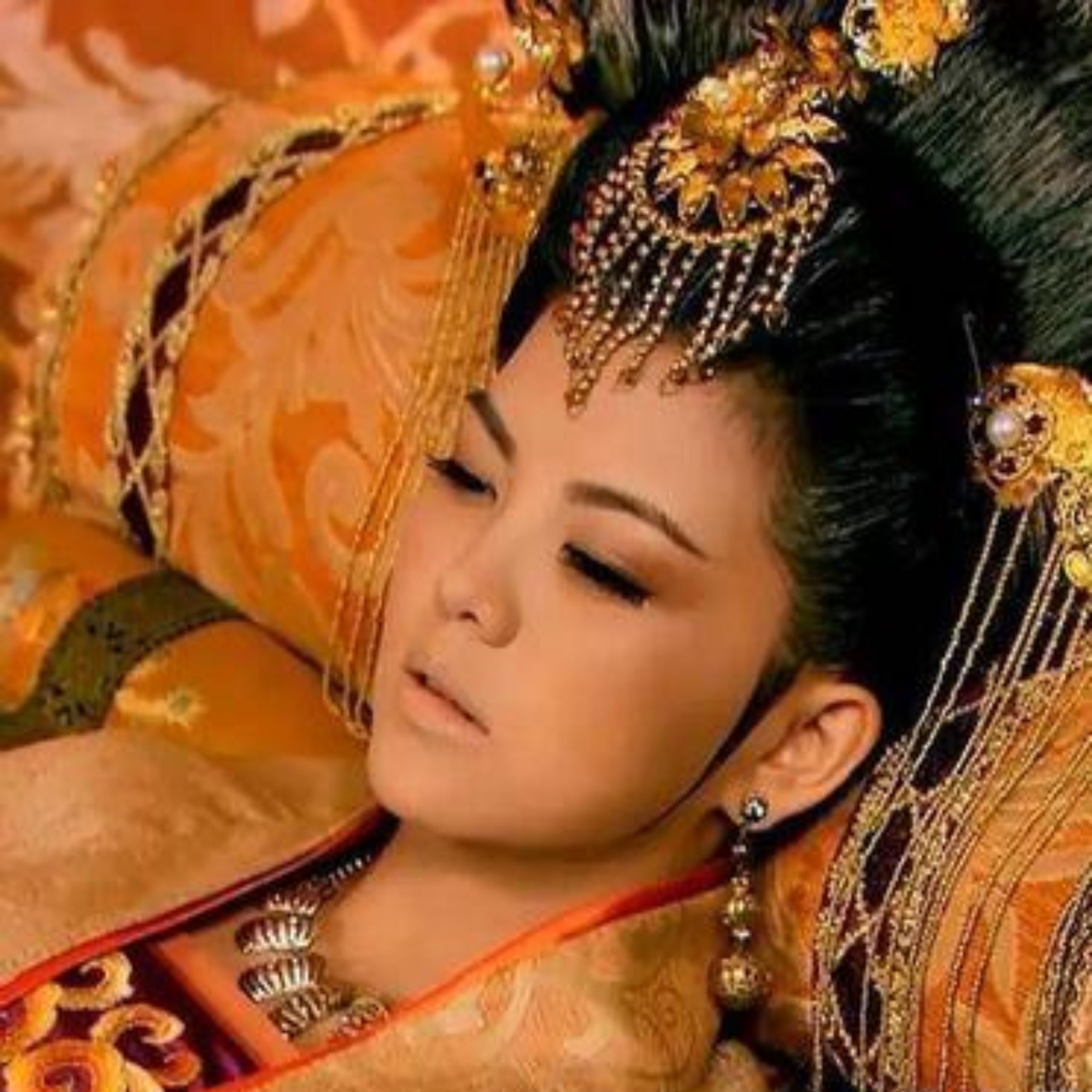For those who are very interested in Empress Cao, the History Encyclopedia editor brings detailed articles for your reference.

The historical drama “Qingping Yue” of the Northern Song Dynasty continued to be popular, and with the help of Prime Minister Lv Yijian, Emperor Renzong of Song finally succeeded in abolishing the role of Empress Guo. However, the harem cannot be without an owner. Emperor Renzong of Song continued to marry Cao Shi, the granddaughter of Cao Bin, the founding general of the Northern Song Dynasty, as Empress Cao.
In the drama, Empress Cao’s maiden name is Dan Shu, which was unanimously recommended by the ministers to Emperor Renzong of Song. In history, Empress Cao was not recommended by ministers, but was chosen by Empress Dowager Yang, the adoptive mother of Emperor Renzong of Song (who was not depicted in the play). Emperor Renzong of Song had a total of three mothers, in addition to his legitimate mother Liu E and birth mother Li Shi, there was also an adoptive mother who had a good relationship with Liu E in the palace. Before Liu E passed away, he instructed Yang Taifei to be honored as the empress dowager, and Emperor Renzong dared not disobey. Empress Dowager Yang ultimately helped Emperor Renzong of Song select Cao as his empress.
As for the maiden name of Empress Cao, there is no historical record, and the name Dan Shu should be fabricated in the drama.

Why choose Cao Shi as the empress? There are three reasons:
(1) Born into a prestigious family. Cao Bin was a famous general who founded the country, and the Cao family was the family of nobles. However, after Cao Bin’s death, the Cao family had no support in the court and met the post election criteria.
(2) Having a noble character, Cao Shi was once betrothed to the Li family by her grandfather Cao Bin, because the Li family’s prime minister was devoted to cultivating the Tao. Cao Shi’s parents once wanted to regret their marriage, but Cao Shi himself would rather compromise himself than let his grandfather break his promise.
(3) Ugly in appearance, after Cao’s marriage, her husband Li Zhi fled as soon as he met her, and outsiders believed that the bride was ugly in appearance. However, Empress Dowager Yang believed that “ugly appearance is not enough to confuse the ruler”, so she chose Cao Shi.
Thus, Cao officially entered the palace and became the second empress of Emperor Renzong of Song. Cao Shi was not chosen by Emperor Renzong of Song, but by Empress Dowager Yang, so the relationship between Emperor Renzong of Song and Empress Cao has always been very ordinary. However, Empress Cao knew that the emperor did not like her. On the one hand, she came from a prestigious family with extremely high self-cultivation, and on the other hand, she learned from the example of her predecessor Empress Guo. Empress Cao adhered to the principles of the central palace, treated people with tolerance, and handled affairs appropriately. Whether inside or outside the palace, she was praised for her virtuous and virtuous character, as well as her maternal dignity.
Although Empress Cao was cautious and careful in everything, she was almost deposed by Emperor Renzong of Song. In the eighth year of the Qingli reign, there were guards causing chaos in the palace, while Empress Cao and eunuch Zhang Mao worked together to resist the bandits. Empress Cao anticipated that the thieves would set fire next, so she quickly sent palace maids to fetch water and prepare. In the dark night, Empress Cao cut off the hair of the palace maids, indicating that rewards are given based on their hair. The palace maids and eunuchs were greatly inspired by this and made every effort to put out the fire, ultimately calming it down. The Biography of Empress Cao in the History of Song Dynasty states:
Later bandits will set fire, and Yin will send people to follow behind with water. If they raise the fire and burn the curtain, the water will be extinguished immediately. On the evening, all the eunuchs and attendants were sent to personally cut off their hair and ordered, ‘Tomorrow we will offer rewards as a test.’ Therefore, we will fight to the death and the thief will be eradicated.
It was precisely because Empress Cao had a good command of things. Later, Song Renzong suspected that Empress Cao had deliberately arranged the unrest in order to show her ability to handle things. Emperor Renzong ultimately wanted to depose the empress, but because he did not provide evidence and the ministers opposed the deposing, the deposing was not successful this time.
In the harem, Emperor Renzong’s true love was Consort Zhang. With the emperor’s favor, Consort Zhang often confronted Empress Cao, but Empress Cao repeatedly tolerated and never wanted to escalate the situation. After the death of Consort Zhang, Emperor Renzong of Song was heartbroken and even wanted to posthumously crown her as empress. At that time, the head of the harem was Empress Cao, and Emperor Renzong of Song posthumously conferred the title of empress, which was simply outrageous. The ministers collectively advised, but Emperor Renzong insisted on giving his beloved woman the title of empress. Empress Cao did not mind this matter. This made the ministers admire Empress Cao even more, calling her a model in the harem.
Little did they know that behind the title of “exemplary harem” for Empress Cao, there was actually a great deal of endurance and suffering. Her marriage to Emperor Renzong of Song was tragic. Emperor Renzong did not love her, but she could only conscientiously fulfill her duties as empress. In that era, as long as Empress Cao did not make mistakes, Emperor Renzong of Song could not depose her. The more so, the more restrained Empress Cao became, not taking a wrong step. She did not receive the emperor’s favor, but at least managed to maintain her position in the imperial palace and the glory of her family.
Empress Cao sat on the throne of the central palace for 28 years until the death of Emperor Renzong of Song, and was honored as the Empress Dowager by Emperor Yingzong of Song. Four years later, Emperor Yingzong passed away, and Empress Cao was honored as the Empress Dowager by Emperor Shenzong of Song. Emperor Shenzong of Song had great respect for his grandmother, Empress Dowager Cao, and often took the Cao family out of the palace to play and comfort her.
Emperor Shenzong of Song was the “Reformed Emperor” in the history of the Song Dynasty. In the second year of Xining, Emperor Shenzong appointed Wang Anshi as a political advisor and began to lead the Xining New Law, also known as the “Wang Anshi Reform”. However, Empress Dowager Cao belongs to the conservative faction and holds an opposing attitude towards the new law.
Although Wang Anshi’s reform had a good starting point, some officials were too radical during the implementation process, which sparked many conflicts. Many conservative officials came forward to oppose it. Empress Cao privately told Emperor Shenzong of Song:
I have heard that the common people suffer greatly from the hardship of young crops and assistance in labor, so it is advisable to abandon them. “(From” History of the Song Dynasty “, the same below)
Emperor Shenzong of Song was about to accomplish this great feat at that time, nodding in front of his grandmother and saying yes, but he still supported Wang Anshi afterwards. Cao Taihuang and Empress Dowager noticed that Emperor Shenzong of Song remained silent and said
Anshi Cheng has talent and knowledge, but there are many who complain. The emperor wants to cherish and preserve him, so he should not leave him out temporarily
The meaning is: Although Wang Anshi is talented, he has offended many people. I know you love talent and want to protect him. Can you transfer him outside the capital.
The intention of Empress Dowager Cao was still to obstruct Wang Anshi’s reform, and Emperor Shenzong of Song still ignored his grandmother. In the end, Empress Dowager Cao brought Emperor Shenzong’s mother, Empress Dowager Gao (Gao Taotao), to Emperor Shenzong of Song and wept together
Wang Anshi is causing chaos throughout the world
Wang Anshi’s reform ultimately ended in failure, during which Empress Dowager Cao played a significant role. Wang Anshi’s demotion was attributed to Empress Dowager Cao’s contribution.
In that era, many people had their limitations. Even Ouyang Xiu, Sima Guang, and others held a critical attitude towards Wang Anshi’s reform, let alone the elderly Empress Dowager? So, Cao’s opposition to Wang Anshi’s reform does not necessarily mean that Cao had problems. For example, Su Shi, a great literary figure who was listed alongside Wang Anshi as one of the “Eight Masters of Tang and Song Dynasties,” once received favor from Cao.
In the second year of Yuanfeng (1079), the “Wutai Poetry Case” broke out, and Su Shi was imprisoned as a result. This was the lowest point of Su Shi’s life. Although the Song Dynasty did not kill literati, Su Shi suffered torture in prison and his life was in danger. After hearing this, Empress Dowager Cao said to Emperor Shenzong of Song:
When I heard that Shi was imprisoned for writing poetry, was it not because of the slander of his enemies? As for poetry, it is too subtle. My illness is already severe, and I cannot be unjustly abused and cause harm to the balance. It is advisable to carefully examine it
Cao, citing his own serious illness, prevented Emperor Shenzong of Song from mistakenly killing Su Shi. Eventually, Emperor Shenzong demoted Su Shi to Huangzhou, and Su Shi was saved as a result.
In the winter of that year, Empress Dowager Cao passed away at the age of 64 and was buried together with Emperor Renzong of Song at the Yongzhao Mausoleum. This legendary empress of the Song Dynasty has completed her life.
After the death of Empress Cao, Zeng Gong, one of the Eight Great Masters of the Tang and Song dynasties, wrote a eulogy for her, one of which reads:
The moral and ethical standards belong to three generations, while the achievements of the royal family belong to two dynasties.
Empress Cao went through three dynasties and made significant contributions to the Song Dynasty. In the hearts of ancient literati, Empress Cao was a rare and virtuous queen.


